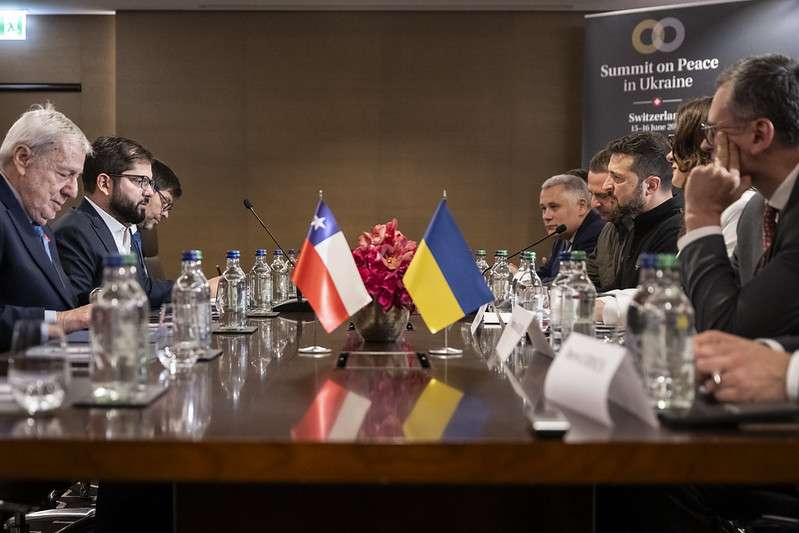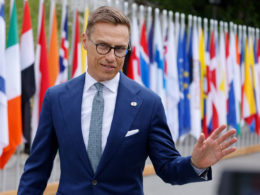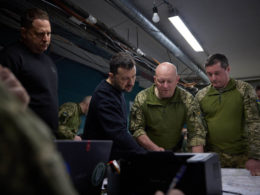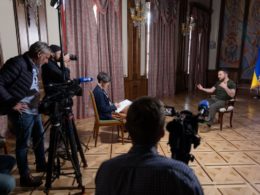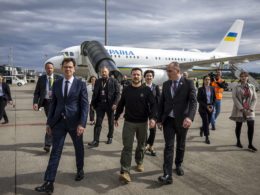Russian President Vladimir Putin's uncompromising demands for Ukraine's capitulation as a prerequisite for "peace" negotiations in Ukraine, delivered during a speech at the Russian Ministry of Foreign Affairs on 14 June, were part of an information operation timed to undermine foreign participation in the 15-16 June Global Peace Summit in Switzerland, according to the US-based Institute for Study of war.
"The Kremlin has frequently timed the intensification of its information operations, including negotiations, to coincide with major policy debates in the West in order to influence Western decision-making. ... The purposeful intensification of Kremlin rhetoric is part of Russia's reflexive control campaign that aims to push the West to self-deter and adopt policies that are in Russia's interests," the ISW believes.
In his speech, Putin demanded that Ukrainian forces "completely withdraw" from Ukrainian-controlled territory in Donetsk, Luhansk, Zaporizhzhia, and Kherson oblasts, which Russia illegally annexed in September 2022. He also insisted that Ukraine officially abandon its goal to join NATO before Russia can agree to a ceasefire and peace negotiations.
The ISW notes that Putin's demands would require Ukraine to cede 40% of Donetsk Oblast, 25% of Kherson Oblast, 25% of Zaporizhzhia Oblast, and 1% of Luhansk Oblast that Russian forces do not currently control, including the strategic regional capitals of Zaporizhzhia City and Kherson City. Putin claimed that Russian forces would "immediately" enforce the ceasefire and guarantee the "unhindered and safe" withdrawal of Ukrainian forces from the four oblasts, a promise that the ISW considers "particularly hollow" following months of Russian war crimes against Ukrainian civilians and prisoners of war, as well as numerous Russian violations of previous ceasefires.
Putin also reiterated his previous conditions for "peace," demanding that Ukraine agree to full demilitarization, "denazification" (which implies the toppling of the current Ukrainian government and its replacement with pro-Russian proxies), and the abandonment of its aspirations to join any external security blocs. He claimed that Ukraine must come to these decisions independently and not on the orders of its "Western masters," insinuating that the West controls Ukraine and that Ukraine is not a sovereign country.
Ukrainian President Volodymyr Zelensky and NATO Secretary General Jens Stoltenberg both responded to Putin's speech, stating that Russia, not Ukraine, must withdraw its forces from Ukrainian territory and that Putin's ultimatums signal Russia's unwillingness to abandon its military objectives in Ukraine. The ISW assesses that "the Kremlin is not interested in good faith negotiations with Ukraine and only feigns its interest in negotiations as part of a wider informational effort intended to convince the West to preemptively make concessions that violate Ukraine's sovereignty."
In addition to Putin's speech, the ISW reports that Russia is also attempting to sabotage the peace summit in Switzerland via cyberattacks. Swiss news agencies reported an increase in cyberattacks on 13 June against several Swiss government websites and organizations that will participate in the peace summit, with a Russian hacker group claiming responsibility for the attacks and threatening additional cyberattacks during the summit.
The ISW concludes that Putin's speech and the timing of Russian cyberattacks are part of the Kremlin's ongoing efforts to manipulate the West and undermine support for Ukraine. The institute assesses that Putin likely aims to weaken Western unity in supporting Ukraine on the eve of the Global Peace Summit and to influence ongoing Western policy discussions about seizing Russian frozen assets, deploying Western training partners to Ukraine, and permissions for Ukraine to use Western-provided weapons to strike Russian military targets further into Russian territory.
Related:

